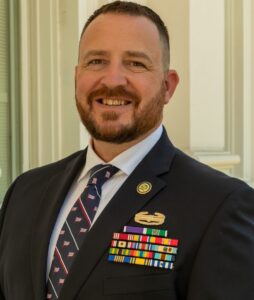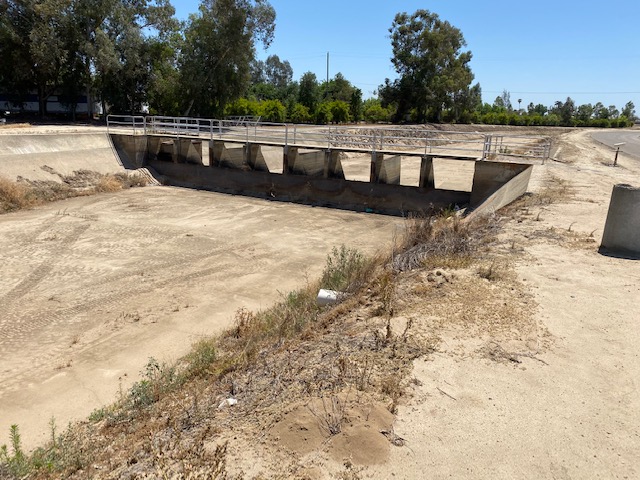The Assembly Committee on Water, Parks & Wildlife held a hearing on water rights and climate change on Tuesday, February 28, 2023 from Room 444 of the state capitol building in Sacramento. The hearing was scheduled to begin at 9:30am with Assemblywoman Rebecca Bauer-Kahan Chairing. This is an informational hearing titled “Adapting Water Rights to Our 21st Century Climate.”
The agenda lists Bauer-Kahan as giving opening remarks then Ellen Hanak and Brian Gray of the Public Policy Institute of California will speak on “21st Century Climate, 19th Century System.” I have tremendous respect for Ms. Hanak but I would also have liked to hear a talk about “21st Century Climate, mid-20th Century Infrastructure,” but that’s just me.
Following this first talk two State Water Resources Control Board employees, Erik Ekdahl and Yvonne West will speak on “How do we modernize the water rights administration?”
Next Council Member Arron “Troy” Hockaday of the Karuk Tribe, Elizabeth Salomone District Manager Mendocino County Russian River Flood Control & Water Conservation Improvement District and former chair of the State Board Felicia Marcus, William C. Landereth Visiting Fellow, Stanford University, Water in the West Program will address the topic of “Examples of challenges to water rights administration.”
Finally, just before public comment Richard Frank Professor of Environmental Practice and Director of California Environmental Law and Policy Center UC Davis School of Law, Jennifer Harder Professor McGeorge School of Law, David Guy President Northern California Water Association and Russell McGlothlin Water Resources Attorney with the Santa Barbara firm of O’Melveny & Myers LLP will discuss, “Proposals for modernizing water rights administration.”
The Hearing
At 9:39am Bauer-Kahan started with a little housekeeping about the call-in number to comment. She launched into a justification about climate change and believes our state’s water rights system has stopped functioning equitably. DO NOT forget Equity and Equitable are code words for a type of Marxism for wealthy countries as envisioned by Italian Communist Antonio Gramsci.
 Vice Chair and Assemblyman Devin Mathis asked how to better manage the water we get, when we get it. Capture, conveyance and recharge as well as not setting up obstacles to SGMA and historic water rights. He said if you look at the ROI there are a lot of people in California paying 100 percent of their water bill and getting no water.
Vice Chair and Assemblyman Devin Mathis asked how to better manage the water we get, when we get it. Capture, conveyance and recharge as well as not setting up obstacles to SGMA and historic water rights. He said if you look at the ROI there are a lot of people in California paying 100 percent of their water bill and getting no water.
Assemblyman Steve Bennett said the background report on today’s hearing was spot on. I have met Mathis (pictured here to the left) and know what he looks like. I’ve spoken with Bennett and know what he looks like. But for the rest of the committee if they didn’t flash their name on the screen I couldn’t tell you who’s who. That’s why I don’t mention all the committee members by name. It is not intended to be disrespectful.
First Speakers
Hanak said she and Gray will talk about pragmatic ways to improve management. She said California has the most volatile weather in the country when it comes to wet and dry years and it is something we’re used to. She said managing for scarcity is needed because of climate change and that requires a more nimble water rights system for curtailment and other actions.
There is also managing for abundance as it looks like bigger storms and wet periods with more rain and less snow will require capturing more flows and more nimble permitting of diversions. She mentioned how much of the state’s agriculture will need this to survive.
Hanak gave an example of how the Central Valley water supply system is broken. She compared the 2017 and 2021 water years. In 2021, 100 percent of the water was used for upstream, within the Delta and out to sea. In 2017 she showed a chart of how much water above and beyond the regulatory needs. More than 30 million acre feet flowed out to the Golden Gate.
Water Code 1058.5 amended in 2014 authorizes the State Board to issue emergency regs for curtailment during drought declarations by the Governor. There are also some ability by the State Board to authorize diversions during wet times.
Hanak said the PPIC recommends including riparian and pre-1914 appropriator rights under State Board curtailment and groundwater rights that impact surface water. It also recommended removing triggers to 1058.5 so the State Board can respond quicker. More frequent reporting and requiring diverters to prove the existence of a valid water right and the lawful exercise of that right under current conditions. And you’ll love this one – encourage renegotiation of Central Valley and State Water Project senior contracts. She said recognize the seniority of those rights but adapt them to dry and wet years.
Hanak then recommended empowering the State Board to administer special permitting for high water flows. Develop watershed specific high flow diversion thresholds. The State Board must recognize recharge as a beneficial use. And, allow for quick actions when a storm comes in with up front programming.
Gray then said PPIC has been working on questions about managing water for fish and the diminishing water in the San Joaquin Valley. He said there is more detail in the notes accompanying their written testimony.
Gray said the State Board has been using differing laws to justify curtailments and PPIC think all water rights should fall under the State Board’s tender, unelected mercies. Actually he just said State Board. He agreed more reporting and requiring diverters to prove their water rights are valid and their diversions are lawful would be beneficial. He said this will create incentives that will relieve the State Board of the burden of investigating.
AB 658 in 2019 should be built upon according to PPIC. This authorizes temporary recharge permits to Groundwater Sustainability Agencies and should be expanded. Having up-front programmatic permitting for when storms come. This will give other than senior rights holders access to flood flows. The recommendation is for GSAs to recharge high flow diversions.
Gray said rapidly changing highwater diversions would have benefits if worked out in advance and expedited immediately. He said Article X, Section 2 supports these recommendations as it requires the most beneficial use possible.
Bennett asked if the State Board’s ability to regulate the extraction of groundwater is limited to groundwater impacting surface water. Gray said yes PPIC isn’t recommending general permitting over groundwater, just when pumping it impacts streams. The point was not brough up that Groundwater Sustainability Plans will cover extractions all without the State Board’s help.
Bennett said when there is a proposal for change those in the water world are resistant. He said the best thing that can happen to them is get this greater flexibility as the current system will put water users at greater risk. He then left the room.
Assemblyman Chris Ward asked if the legislature needs to make sure SGMA isn’t wasting time and maybe SGMA should play out faster than the current rate. Gray said let SGMA play out. Ward asked what authority the legislature has over the CVP. Gray said the law states federal water projects will obey all federal and state laws.
Hanak said SGMA was never designed to be an overnight program. It will take time and as an example most of the Groundwater Sustainability Plans submitted to DWR were sent back for improvements as everyone, landowners and agencies learn about how to adapt to SGMA. She said the GSAs are working hard and no one is standing still.
Mathis said it is very important the legislature ensures recharge is a vital use of water. Bauer-Kahan asked if that applies to dry years as much as wet years. Gray said it is the high flows that provide the recharge regardless of the year type.
Bauer-Kahan asked if there is an over allocation of water in California. Hanak said it makes more sense to use groundwater during dry years but it needs to be replaced in the wet times. Agriculture depends on this. Bauer-Kahan said during dry years it seems people think they have water rights to water that doesn’t exist. Hanak said there is curtailment on a regular basis if you’re a junior rights holder. Gray said there are statutory and regulatory priorities that need to be compared if I understood him correctly.
Bauer-Kahan said the Native Americans are the first on the land or fish, not sure which or maybe both (audio had some trouble) and should be senior rights holders but the current system doesn’t take care of them.
Panel Two
The first to speak was Ekdahl, Deputy Director of Water Rights at the State Board. Another person I respect, even when he brings bad news. He rhetorically asked what water rights are. He said modernizing water rights is to update a system created more than 100-years ago. He said this is not a wholesale reform. He showed a slide representing eight types of water rights in California. It’s complicated. The State Board got $30 million to spend on UPWARD, updating water rights data for California. Good news a vender has been selected to digitize millions of documents. He said this will help drought planning, supply and demand assessments, telemetry research and increased enforcement.
Ekdahl said this will result in better data, better decisions, better planning and management tools, easier access for everyone and better innovation. He said there are more than 7,000 diversion claims for water on the San Joaquin and Sacramento Rivers annually. Not all of them were valid and having better data will help determine this. He cited the Russian River voluntary water sharing program as an example of how there will be improvements.
Ekdahl said up to 85 percent of State Board staff is redirected to work on emergency drought responses, leaving only 15 percent to work on racial equity training. He didn’t add the part about CRT, I did.
West, a State Board enforcer said the emergency regulations in 2021-2022 led to an unprecedented enforcement. Cease & desist orders are one way to enforce but are subject to a hearing, oh my. Administrative civil liability can cost between $500 and $10,000 per day. Information and immediate interim relief are also in the toolbox.
West said there was progress but the Shasta River Water Association presented challenges. The curtailments were put in place to protect salmon. In 2022 on August 19th a cease and desist order was issued and during the 20-day to request a hearing the SRWA filled its members’ ponds. This accounted for a quarter of all public complaints that year but she didn’t say how much water was involved.
West said enforcement is time and labor intensive. She said field presence isn’t enough to deter violations. The staff can’t get to most cases and the economic benefits to violate can outweigh penalties. There is also a good deal of uncertainties about how the State Board can claim jurisdiction over certain types of rights. She said the State Board is trying to work to maintain the water rights system to protect water rights holders. Bauer-Kahan said as a former regulator she appreciated the enforcement roll.
Ekdahl said Pre-1914 rights holders have different terms and that is why the State Board calls them claims. Under the riparian rights the State Board suspects there are a great deal of violations. West said the 20-days to request a hearing period for those charged with violators is often abused. One of the Assemblywomen on the committee said they have introduced a bill with $4,000 per day fines to address this 20-day period.
West said they are trying to get to the Attorney General’s office to help with the problem. Bauer-Kahan said kudos to the State Board for doing the work they do. Bennett came back and asked if the State Board has authority to verify water rights. Ekdahl said riparian and pre-1914 rights are difficult to verify, but all post-1914 rights are verifiable. Bennett asked if after the digitization of the documents will it become easier to verify. Ekdahl said there will still be problems as historical diversion records don’t go back very far.
Bennett said when he was working on water in Ventura County you couldn’t trust people to voluntarily report their accurate usage. He said he didn’t trust them and was vilified for saying so. He said requiring electronic metering helped. He said relying on the Governor’s emergency orders isn’t efficient. Bennett asked since bottled water depends on federal permits do they have to comply with state law. Both West and Ekdahl said they have to comply with California law. Evidently there is an ongoing case involving bottled water they couldn’t comment on.
Bauer-Kahan asked if she claims to own property purchased before 1914 it should be verified and it fascinates her that isn’t true with water. She wanted to know what else the administration is intending to do. Ekdahl said they continue to work through the challenges and report to the admin.
Third Panel
The third panel began at 11:12am. Hockaday said his tribe is the third largest in the state. He said the Karuk tribe is a salmon people with ceremonies when the fish return to the Klamath River. He said everything is in dire straights in Klamath, tribes and farmers alike. He said the drought and water quality is hitting hard. He said there was a 50-mile stretch in the Klamath River there was an oxygen decline that killed everything. Two weeks later the farmers said they’d take water from the Shasta River and they took it. It made him cry and was a sad day. He said there used to be 800,000 salmon in the Shasta and only gets 1,000 now. He said study after study shows pumping groundwater in the dry years harms the river flows.
He said the drought and water quality is hitting hard. He said there was a 50-mile stretch in the Klamath River there was an oxygen decline that killed everything. Two weeks later the farmers said they’d take water from the Shasta River and they took it. It made him cry and was a sad day. He said there used to be 800,000 salmon in the Shasta and only gets 1,000 now. He said study after study shows pumping groundwater in the dry years harms the river flows.
Hockaday said the Klamath farmers laughed at the $500 fine. He said it felt like he was slapped on the hand sent to the corner. He said the Karuk are not against farming and ranching but it is all about money nowadays. He said he thinks the Water Board should raise its fines. He said its only in the last 50-years tribes have been treated like people. He said since logging was stopped a great deal of fuel is building up and that needs to be managed correctly. He said manage that correctly and the watershed will yield more water. He said the Karuk’s involvement with salmon is sacred for the tribe’s children. He was happy to see the dams on the Klamath River removed and thanked California Fish & Wildlife’s head Chuck Bonham for the help. He then said there was a sturgeon kill on the American and Sacramento Rivers and those fish live to be 200-years old. He recommended putting tribal knowledge to work on these problems. He said his tribe is dedicated to AB 460. He also wants to line ponds in the Shasta River watershed as the soil is lava based and doesn’t hold. He said the tribe isn’t against farmers but the fish have the first water rights. Bauer-Kahan said that was elegantly spoken and the Native Americans have managed the land so much better for thousands of years.
California Fish & Wildlife’s head Chuck Bonham for the help. He then said there was a sturgeon kill on the American and Sacramento Rivers and those fish live to be 200-years old. He recommended putting tribal knowledge to work on these problems. He said his tribe is dedicated to AB 460. He also wants to line ponds in the Shasta River watershed as the soil is lava based and doesn’t hold. He said the tribe isn’t against farmers but the fish have the first water rights. Bauer-Kahan said that was elegantly spoken and the Native Americans have managed the land so much better for thousands of years.
Whether or not it’s true a relative handful of stone aged humans were automatically better stewards of the land than we are today – I was pleased to finally see a Native American speaking for himself and his tribe. Good for Councilman Hockaday and the Karuk. So many of these hearings have highly educated, angry white women speaking for the tribes. It doesn’t seem right in this day and age and comes across as kind of condescending.
Salomone said the State Board had been in communication with the Russian River folks. But in 2021 the river was going dry and community cooperation wasn’t backed by law. She said if you split a pitcher of lemonade between children everyone would get an equal share but under California water rights the oldest child would get a full glass the next oldest a little less and so on. If there wasn’t enough for the youngest child too bad. She said the community did come together and the oldest got a not quite full glass and there was some for everyone. She said they found a way to adapt without throwing out the rights. She said the real word is reform, not modernization but that scares people. She said modernization needs to be collaborative with the community. Water users and suppliers need to buy in with trust. There must be sufficient funding. State mandates without funding just causes chaos and loss.
little less and so on. If there wasn’t enough for the youngest child too bad. She said the community did come together and the oldest got a not quite full glass and there was some for everyone. She said they found a way to adapt without throwing out the rights. She said the real word is reform, not modernization but that scares people. She said modernization needs to be collaborative with the community. Water users and suppliers need to buy in with trust. There must be sufficient funding. State mandates without funding just causes chaos and loss.
Salomone said any examination of the water rights systems must include equity and address the relationship between people and the environment. Bauer-Kahan said, “It was really fun to hear what your doing up there. It represents the best of humanity.”
Marcus said she shares much of what was said but she will focus her observations on implementation of the system. She quoted Yogi Berra who said, “In theory there is no difference between theory and practice.” She also said she’s never had a job that made her say, “You’re kidding me,” as much as when she worked at the State Board. There is a lack of data, it is complex and the funding isn’t there.
Marcus said there isn’t a water rights system, there are systems in the systems. She said other states don’t have this many systems. (I suspect she’s omitting Colorado from that list unless they’ve changed their laws there. Also, full disclosure, Marcus is a gracious lady who has been kind to me many times.)
SGMA is working and many good people are working hard to make that happen said Marcus. She said there is a misunderstanding about what water rights actually are and that leads to confusion of expectations. There needs to be more data to quantify water rights. There are conflicts between the enviros and water users but there are also conflicts between water users.
Marcus said the $30 million to upgrade isn’t enough. To quantify water rights takes decades. Most other western states have already tackled this task. She said senior and riparian rights holders do not have to pay fees for permits. But they now have to start showing usage. She said the addition of an Office of Administrative Hearings has helped but the State Board is working with its hands tied behind its back, blindfolded. She would like the Water Board to be able to initiate adjudication instead of having to wait for a petition. The Water Board has never had the staff to untangle the complexity of law and when it stepped up to administer rights it was accused of violating rights. Marcus said there just needs to be more funding and there is no fee based system like with power.
decades. Most other western states have already tackled this task. She said senior and riparian rights holders do not have to pay fees for permits. But they now have to start showing usage. She said the addition of an Office of Administrative Hearings has helped but the State Board is working with its hands tied behind its back, blindfolded. She would like the Water Board to be able to initiate adjudication instead of having to wait for a petition. The Water Board has never had the staff to untangle the complexity of law and when it stepped up to administer rights it was accused of violating rights. Marcus said there just needs to be more funding and there is no fee based system like with power.
In summation she said the State Board needs to have more than the authority given when the Governor issues an executive order. She said the PPID recommendations are a good start.
Bauer-Kahan said she’s been studying other water rights systems and asked Marcus if she has any favorites. Marcus said there is a big difference between western and eastern states and things to learn. She did say there are some good and bad facets to Australia’s water law. While there are still senior rights during a drought the Aussies have a sharing worked out. Australia also is very big on quantifying. Marcus said the more good neighbors the better. Bauer-Kahan said her take away was the fish has senior rights as they were here first. Spoken like someone who doesn’t live in the natural world.
The Last Panel
Frank started by saying his co-panelist Harder is a leading expert. Frank listed news stories from the New York Times and let everyone know how poor the water rights system is. He was one of the Conservation Leadership Panel members (no ag related members, again with theory) who theorized and came up with 11-recommendations. In 2022 two of the recommendations were included. He is a proponent of dealing with climate change and inclusion. He wants more power for the State Board.
proponent of dealing with climate change and inclusion. He wants more power for the State Board.
At this point I had to ask myself – is there any committee in Sacramento that would invite testimony from someone who didn’t advocate more power for the government?
Frank said the State Board needs the power to assess much greater fines because they don’t deter illegal behavior to the farmers and ranchers. This is unfair to other water users and creates and uneven playing field for the environment and tribes.
Harder spoke next saying she concurs wholeheartedly with Frank. She said all types of water rights need to be put under control of the State Board. Threats of litigation by water users cause the state to shy away from conflict. She said better verification is her first recommendation. She wants citizens and agencies to have to prove they have a right.
Harder said the State Board didn’t invent curtailment and it isn’t taking water away from rights holders. She said it is a way to divide limited supplies.
Guy spoke next and said the Sacramento River supplies much of the state’s needs. He said he suggests pragmatism in enforcement. He said NCWA has been working with the State Board since 2014 and has been able to work well with them. He was the only presenter who actually represents folks who have been curtailed and he said it hurts his constituents when those orders hit. Often when his members believe they will be curtailed they can go to the State Board and find out how that may not be as great an amount of water as expected. He said he supports the State Board getting more money to work on illegal diversions.
Guy said implementing groundwater recharge is as important as anything discussed today regarding water rights. He said he looks forward to working with legislators on crafting good law. However, he said putting words on paper is much easier than implementing. Bauer-Kahan told him he wasn’t the only one in the room who represents those being curtailed. Which wasn’t what he claimed, he claimed he was the only one presenting who does so.
McGlothlin was next and said common law has merged two types of water law, appropriation as used out west and riparian as used back east. He said there must be coordination between hydrogeological basins and regulate for robust water rights exchanges. He said the State Board doesn’t have the resources necessary to do its job. Therefore, there is a role for the courts even though it is slow. He would like legislation to allow the State Board to initiate adjudication over ground and surface water. He would like the State Board to work as water masters to help with this process.
Bauer-Kahan asked about transfer and trading of rights. He said without scarcity there are no markets and trading. He said this works well in adjudicated basins with water masters. He quoted Bennett saying when there is a market, quantification is much more attractive.
Guy said transfers in California are an example of how the water rights system is actually working well. Bauer-Kahan said she’s learned a lot today and heard much consensus.
Public Comment
 Speakers get one minute. And those in the room go first. However, you couldn’t hear the first man worth a bucket of spit until someone showed him how to speak into the microphone. But by then he was pretty much finished. A lady with a mask spoke and said something about water whiplash and AB 1222 is needed? It was a ridiculous display of not being able to hear.
Speakers get one minute. And those in the room go first. However, you couldn’t hear the first man worth a bucket of spit until someone showed him how to speak into the microphone. But by then he was pretty much finished. A lady with a mask spoke and said something about water whiplash and AB 1222 is needed? It was a ridiculous display of not being able to hear.
A Delta farmer spoke softly saying without proper drainage the groundwater can raise into the root zone. He warned about delaying supplies to growers.
The California Coastal Alliance spokesman was next and almost magically was heard. He cited the Restore the Delta racist press release as proof white racism is behind it all. He looked white to me. In fairness it could be the audio technician in the room wasn’t able to get the sound adjusted before this speaker.
Here’s a statement I received from DWR during the hearing regarding the report containing racial and sexual profiling of elected officials and citizens. This is the report Restore the Delta was using to try and claim water rights are racist. “DWR removed the water rights and local water agency demographic data because it was analyzed using predictive racial and gender modeling that can misidentify people and the data included a collection of personal information that should not have been posted publicly in that manner. DWR is working to develop and determine a more appropriate method of collecting and reporting equity data as part of the 2023 update to the California Water Plan.” Emphasis mine.
Another Restore the Delta gal spoke saying AB 460 is a good bill. She wants more environmental and racial justice heard from in the future.
Turlock Irrigation District General Manager Michelle Reimers said they have both senior and junior rights holders in her district. She said water rights holders were left out of the conversation at this hearing. She was correct.
Telephone Comments
Stephani from a rural community said it doesn’t take genius to realize we are in a crisis and the media pushes whatever the environmentalists say. She asked why we don’t just all leave and hand the land over to the Native Americans.
There was an objection from another lady who didn’t fully identify herself. She pointed out there were no water rights holders invited and that in itself will prove to be one reason there is such little faith the legislators in Sacramento being able to get results. On that ending note the hearing was adjourned at 12:45pm.
My Comments
The panels were biased in favor of theory. The only speaker with boots on the ground experience in the actual allocation and distribution of water was David Guy. I’m not saying all the speakers were hostile to agriculture but with the exception of Guy, Hanak and Gray whether or not a safe abundant food supply was tied into water rights didn’t seem to be of much concern. It would have been good to hear from someone who’d daily living is directly impacted by water rights.
There was no mention of the state’s dismal record of failing to upgrade infrastructure and that slothful behavior’s contribution to the problem. It was mentioned again and again the current water rights system is more than 100-years old, like that’s a bad thing. The Endangered Species Act hasn’t been updated in 50-years, the state’s water infrastructure, like the fish screens in the Delta, hasn’t had any major expansion or update in about as long.
But to me, the most egregious matter was the complete omission of concern for rights. I’ll bet you a dollar there are plenty of rights the folks in that room would care deeply about if you try to take it away from them. I suspect they’d happily quote the Constitution to back their position and proclaim we’re a nation of laws.
When does a right become something academics, attorneys, bureaucrats and legislators can take away? Evidently when it’s somebody else’s water right. That’s what I was hoping to hear about – when is a right a right.
DISCLAIMER OF RESPONSIBILITY; Waterwrights.net strives to provide its clients with the most complete, up-to-date, and accurate information available. Nevertheless, Waterwrights.net does not serve as a guarantor of the accuracy or completeness of the information provided, and specifically disclaims any and all responsibility for information that is not accurate, up-to-date, or complete. Waterwrights.net’s clients therefore rely on the accuracy, completeness and timeliness of information from Waterwrights.net entirely at their own risk. The opinions expressed in this report are those of the author and do not represent any advertisers or third parties.
complete. Waterwrights.net’s clients therefore rely on the accuracy, completeness and timeliness of information from Waterwrights.net entirely at their own risk. The opinions expressed in this report are those of the author and do not represent any advertisers or third parties.
ALL RIGHTS RESERVED. Copyright 2023 by WaterWrights.net






























